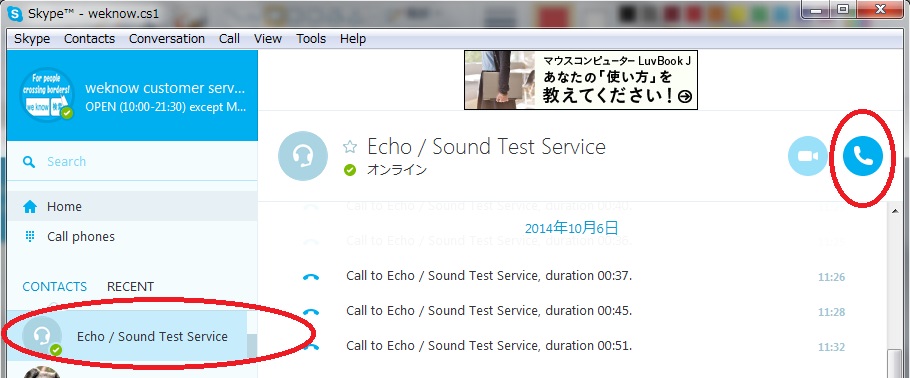

#JAPANESE ONLINE SKYPE HOW TO#
We are here to give you tips on how to get the most out of your Skype English classes. Why should you pay for all of that when an English speaking tutor online is easily accessible from your home? Also, it takes money and effort to reach the tutor’s academy or home. Not everyone is comfortable going to someone else’s home. These are not the days to pack your bags, leave your comfortable home and go to an academic institution or a tutor’s home. Whether you’re looking for full-time online classroom work or casual one-on-one lessons, there are options on the list to accommodate you.In this article, we will focus on the benefits of online English lessons on Skype and whether they are worth your valuable time and money.ĭo you ever think how convenient it is to take online lessons via skype? Whether you are taking English lessons via Skype or any other subject, it is easy to go online and connect with your online tutor. Many companies have expanded their lessons and offerings in the past year. You can also teach English to students who speak languages other than Japanese. This company provides competitive rates and allows for flexibility. Teaching English online to Japanese students can be a blast! As long as you know what you’re looking for and meet the company’s requirements, there are plenty of amazing options available to you! If you are already in Japan or are interested in teaching within the country, you can also peruse our 2022 guide on How to Teach English in Japan. You will, however, need to have a bachelor’s degree as well as a 120hr TEFL at a minimum. Yes! Japan is one of the top places native English speakers go to teach and there are lots of jobs to choose from. FAQs on Teaching English to Japanese Students This goes especially for the shyer students, who might be worried about acting outlandishly. They may hesitate to ask you questions for fear of being berated. The more friendly and approachable you are, the easier it will be for your students to come to you with questions.īy contrast, if you aren’t friendly, your students might be intimidated. Children tend to thrive on the energy of their teachers. The Japanese term for this is “genki.”Įnthusiasm is especially good when you’re teaching younger Japanese students. The more enthusiastic you are, the more encouraged your students will feel. Whether you’re teaching an entire classroom or doing a one-on-one tutoring session, one of the best things you can do is be high energy and confident. Simply being conscious of this distinction between Japanese and many western societies can be really helpful while lesson planning as well as interacting with students. Students don’t want to stand out from the rest. Individualism isn’t highly encouraged in Japanese society. The older your students are, the more shy they’re likely to be about giving opinions. Though it’s common for ESL lessons to involve opinions – “What’s your favorite color?” for example – these will be more difficult to use in an average Japanese classroom. It’s common for Japanese people to use indirect language and say they aren’t sure about things, rather than offering direct opinions. Japanese students may be nervous when asked directly for their opinions. It’s important that you’re willing to repeat the lessons until they stick, and that you believe that your students are doing their best. Some students might also struggle to pick up seemingly basic grammar rules. You might have to work hard to bring students out of their shells. Be encouraging and friendly, and make sure to praise correct answers. Japanese students may be intimidated by the language and worried about making mistakes. Patience is required for any teaching position, but it’s especially important for English teachers. Your students won’t appreciate it and it doesn’t make for an inclusive learning environment. You can talk about how American culture is different, but don’t make disparaging comments about the differences in Japan. In keeping with that, it’s best not to complain about the culture. Your students will appreciate it if you make an effort to connect with them about their food, language, art, and music.

And learn a bit about Japanese culture in general.

Take some time to learn about the difference between Japanese and American classrooms. Your students might be excited to learn about where you’re from, but they also might not know very much about American cultural traditions. Japanese culture is very different from American culture. Find more companies on our list of the 21 Best Places to Teach English to Chinese Students Tips on Teaching English Online to Japanese Students Respect the Culture


 0 kommentar(er)
0 kommentar(er)
